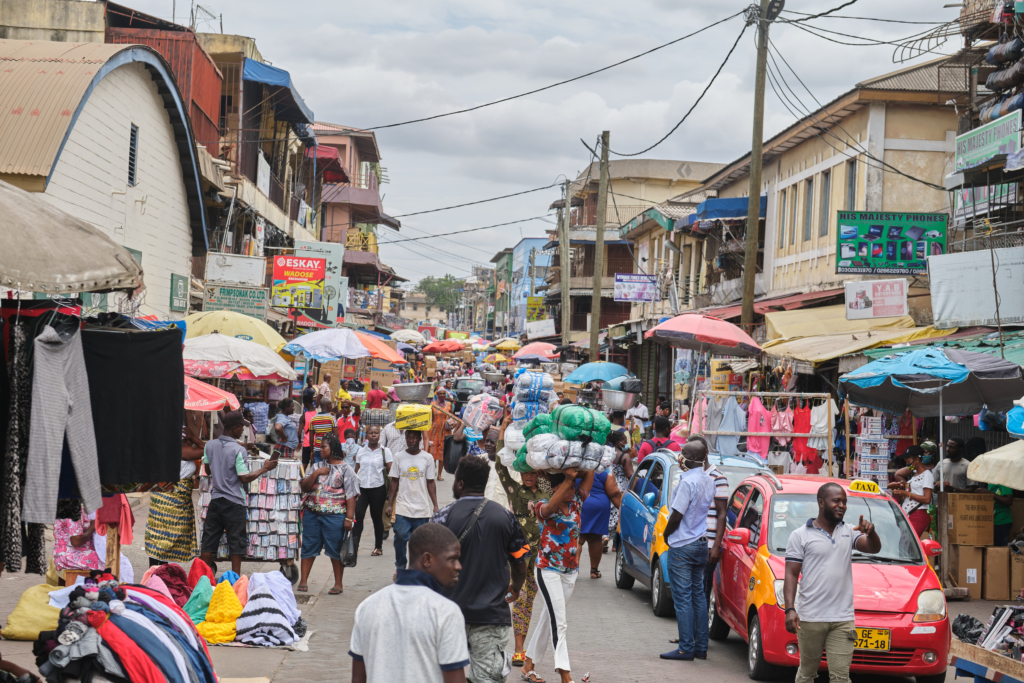As Ghana continues to evolve into a modern economic hub within West Africa and Africa at large, the concept of a 24-hour economy is gaining more attention than before. While it is not yet official policy, the potential of round-the-clock operations promises to revolutionize how businesses, supply chains, and consumers interact. With growing urbanization, technological advancements, and increasing consumer demands, preparing for this shift is not just “Dwin Hw3 Kan”—it is essential for Ghana’s economic future.
The Potential Role of Just-In-Time (JIT) Strategy in a 24-Hour Economy
If Ghana were to transition to a 24-hour economy, the Just-In-Time (JIT) strategy would become an indispensable tool for streamlining operations. JIT minimizes inventory levels by ensuring goods are delivered exactly when needed, reducing waste and costs. This approach would align perfectly with the demands of a 24/7 economy, where businesses would need to balance speed and efficiency without overstocking.
For example, retailers and logistics providers in Accra, Tamale, Western-Central and Kumasi could benefit from implementing JIT practices to meet consumer expectations for faster service while avoiding the financial burden of excessive inventory. However, achieving this would require a robust infrastructure, reliable supplier networks, and investment in technology to track and manage inventory in real-time. Preparing for such a framework now could ease the eventual transition when the 24-hour economy becomes a reality.
Preparing for Velocity: Anticipating Consumer Expectations
A 24-hour economy would bring an accelerated pace to Ghana’s supply chains. Customer expectations for rapid delivery, already evident in sectors like e-commerce and grocery delivery, would become the norm. Businesses must begin rethinking lead times and streamlining order-to-delivery cycles to adapt to this future demand. Companies such as Jumia, Shopnaw, and supermarkets like Melcom and KFC can use the current landscape as a testing ground to refine their logistics capabilities and position themselves for a seamless shift when 24/7 operations become policy.
The Need for Agility and Resilience
Speed alone is not enough. Ghana’s businesses must prioritize building supply chains that are agile and resilient, able to withstand disruptions such as inconsistent road infrastructure, no rails, unpredictable fuel prices, and fluctuating market demands. Preparing for a 24-hour economy involves developing flexible resource allocation strategies, contingency plans, and robust partnerships to address potential challenges. For instance, logistics companies operating out of Tema and Takoradi ports can begin enhancing their capacity to handle increased trade flows and irregular operating hours.
Technology: The Foundation for 24/7 Readiness
Technology will be the cornerstone of Ghana’s ability to implement and sustain a 24-hour economy. While many businesses are already adopting solutions like real-time tracking, automated warehouses, and predictive analytics, scaling these technologies will be critical. Investing in IoT devices for visibility, blockchain for secure data sharing, and AI-powered demand forecasting tools will enable businesses to operate more efficiently and respond proactively to market trends.
Workforce Development: Preparing for 24/7 Operations
Transitioning to a 24-hour economy will have significant implications for workforce management. Businesses must begin preparing now by upskilling employees to handle advanced technologies and data-driven operations. Shift work and flexible scheduling will also require careful planning to ensure worker productivity and satisfaction. Establishing talent development programs in partnership with educational institutions and industry leaders can create a skilled workforce ready to support round-the-clock operations.
Collaboration as a Strategic Imperative
Ghana’s businesses must recognize that no single entity can prepare for or manage a 24-hour economy alone. Developing collaborative ecosystems that involve suppliers, logistics providers, technology vendors, and policymakers is essential. Early investments in building trust-based partnerships and integrating data-sharing mechanisms will provide a solid foundation for the coordinated planning and rapid response required in a future 24/7 operating environment.
Balancing Costs While Building Capacity
Preparing for a 24-hour economy also means balancing the costs of readiness with long-term profitability. Operating around the clock will increase expenses related to labour, energy, transportation, and technology. Companies must focus on optimizing processes now to avoid overburdening their budgets later. For example, exploring renewable energy options to power logistics hubs and adopting advanced inventory optimization techniques can mitigate operational costs while enhancing efficiency.
Charting the Path Ahead
Although Ghana has yet to officially implement a 24-hour economy, the groundwork for such a transformation must begin now. Businesses, policymakers, and supply chain leaders must align efforts to build the infrastructure, technological capacity, and workforce necessary for this shift. The benefits of a 24/7 economy—enhanced consumer satisfaction, increased productivity, and stronger global competitiveness—far outweigh the challenges, but only if the transition is thoughtfully planned and executed.
The future of Ghana’s economy is bright, and preparing for round-the-clock operations is a critical step toward achieving sustainable growth. By starting the journey today, Ghana can position itself as a leader in Africa’s supply chain innovation and ensure its readiness for a dynamic and competitive global marketplace.
All stakeholders should consider the Power of Now.
The time to act is now because in a 24/7 world, standing still is not an option.
Author’s Note: This article reflects my personal observations and research in Ghana’s digital finance sector. While I’ve attempted to be comprehensive, market conditions and user preferences continue to evolve. Please feel free to critique my work and share feedback with me. Let’s learn and seek knowledge together.

About the Author
Precious Baidoo is a seasoned professional with nearly a decade of experience in Supply Chain Management. He holds a Master’s degree in Procurement and Supply Chain Management and is CIPS, GIPS and CMILT certified. He is also a certified Digital Finance Practitioner (CDFP) with a deep interest in digital payments, digital identity, and emerging technologies, Precious blends his expertise with a passion for innovation. A lifelong learner and student of life, He is committed to continuous growth and leveraging knowledge to drive transformative solutions.
DISCLAIMER: The Views, Comments, Opinions, Contributions and Statements made by Readers and Contributors on this platform do not necessarily represent the views or policy of Multimedia Group Limited.


